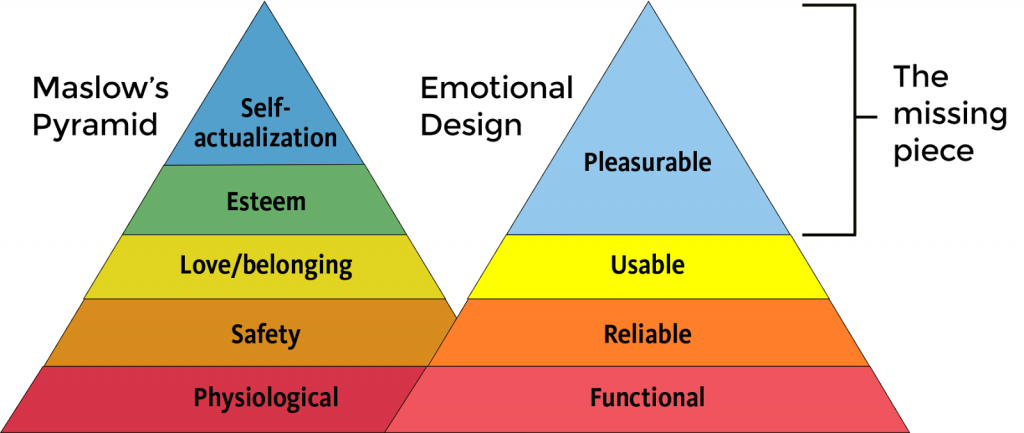Design should attract and entertain, but have you ever thought what kind of emotions it should bring?
I wanted to start this article with this cool question, but let’s be honest, emotional design is not something new. So we can say that most of the designers understand the emotional design paradigm, yet not everyone uses this approach and understands its role in the user engagement. So today I wanted to talk a little bit about the emotional design in general and remind you why we actually need it.
Spoiler: I really think that everyone should understand and use this approach.
Functional design is the past
Right before people understood that emotions actually sell, there has been a huge bet on the so-called ‘functional design’. And I’m not only talking about the web-design right now, but I also bet you’ve seen all these typical buildings from the past that looked like this.

The main purpose of these buildings was a giving home to as many families as possible, and that was the main function, the design did not matter. That approach gave life to so many buildings designs that frustrated me with their actual look. They were not beautiful and did not bring any emotions except the existential sadness.
The good news is you won’t find so many fans of the functional design nowadays, and that’s quite easy to explain. The functionality is still important, but consumers simply do not want the product to be just functional. It should be beautifully designed and… guess what… bring them great emotions.
Time went by, and the ‘UI/UX designer’ position appeared. It was another nail in the coffin of the functional design with its brutal appearance. It means that now we have a special person who takes care of the user’s interaction with the product and ensures that it brings the needed pleasure and happiness.

Response in interaction = Emotion
That’s where we get to the actual interaction process. When a user interacts with your product, it gives a certain response to each action and each event happening on the screen.
In emotional design, the main response is emotion. The main idea is to make a customer feel in a certain way, and you can make it in a few ways applying the emotional design principles. Here, let me tell you more about it in details.
Users can experience three kinds of emotions while taking a look at your products, they are:
- Oh damn, this looks so cool, I definitely want it, and I will own it no matter what!
Basically, this is kind of an approach that any car manufacturer applies when he designs a new car and present it to the market.
Any car, except, the budget smart cars, make you want it and dream about it. That’s something that brings a true joy and self-respect to a consumer. They look kick-ass, and you feel cool just owning it, it’s not even about driving it!
- It works so smooth and makes me smarter, I’ve got to use this inventive piece of art!
That’s where the behavioral design steps in. Develop a product that performs well and gives the customer a feeling that using this app or website makes him special.
- That’s such a great reflection of what I need, it completes me on all levels
I would say that this is the approach that Apple applies when they work on any of their devices or operational systems. They make it so convenient that the actual interaction with their system makes you feel complete, it makes you feel like this cute little machine understands you completely and knows what you want and all your desires.
Why should I use this approach?
Well, let me see… Do you want your users to love your app or website? Do you want them to get back to your app again and again? That’s where you need to make sure that they get the joy and pleasure they need. Otherwise, someone else will.
Basically, to my understanding, that’s the coolest thing about these days. Nowadays there are so many alternatives that everyone should compete in bringing the best possible emotions to the customers. And we, as regular users, can enjoy the beauty of functional, yet, very beautiful design.
P.S. Just to make sure you will get Design Templates in the right place.
Get more to your email
Subscribe to our newsletter and access exclusive content and offers available only to MonsterPost subscribers.


Leave a Reply
You must be logged in to post a comment.